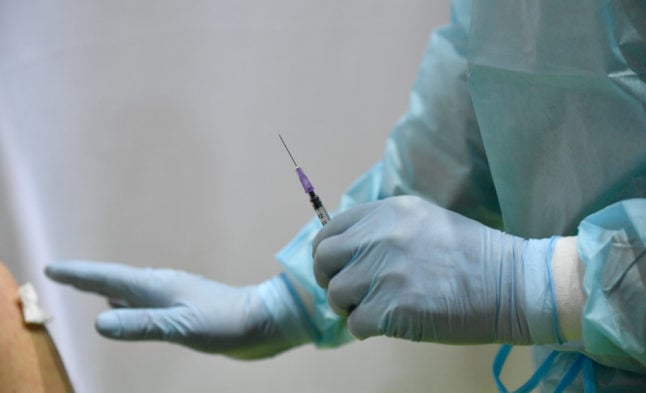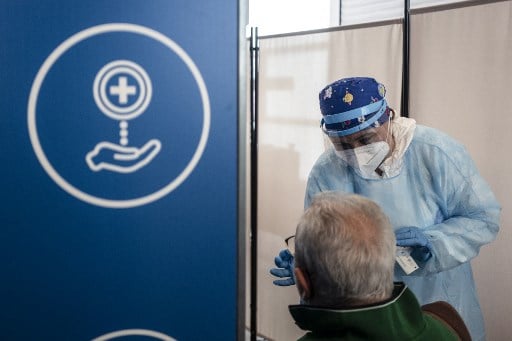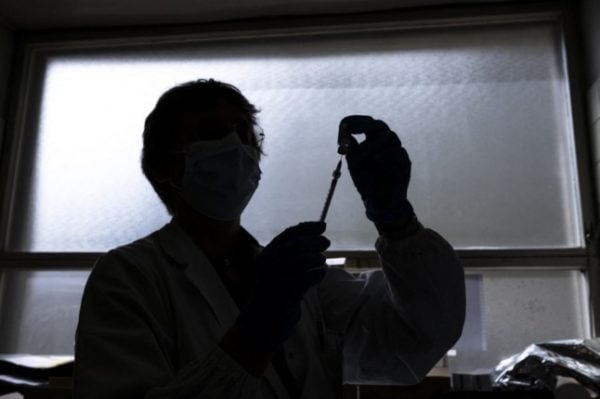After Berlin – along with three other German states – announced it was to lift the priority order for AstraZeneca, opening it up to all adults, many residents have been desperate to find an appointment at a doctor’s practice.
They are contacting their own GPs – but also calling and emailing other doctors across the city in the hope that they can find a spare appointment.
However, we’ve heard anecdotally – and Tagesspiegel reports – that most are facing lots of rejections.
“Due to the massive flood of messages with partly copy-paste vaccination requests, we are temporarily only able to filter out our patients’ requests for appointments, prescriptions, etc. to a limited extent,” said the automatic e-mail response of one Neukölln medical practice, reported the newspaper.
READ ALSO: Four German states offer AstraZeneca to all adults
Other doctors say that dozens of people who want to be vaccinated are standing in front of the practice in the morning without prior notice, which is hindering other procedures and regular appointments for patients.
The Association of Statutory Health Insurance Physicians (Kassenärztliche Vereinigung or KV), which represents the interests of doctors, is urgently advising people not to sign up for a vaccine at lots of practices at the same time – because it could result in them getting more than one appointment.
“This can lead to considerable organisational effort, for example if the people who had a vaccination appointment do not cancel it at other practices or do not allow themselves to be removed from the waiting list,” said a spokeswoman.
In order to help those willing to be vaccinated with AstraZeneca, especially people without their own family doctor, the KV Berlin has now published a list of practices which also delivers jabs to people who are not patients, and have agreed that their data will be published.
It can be found on the KV website in the “for patients” section. The list includes GPs, as well as other doctors including gynecologists, surgeons and ear, nose and throat specialists.
The KV states that it updates the list once a day from Monday to Friday. Only practices that have voluntarily asked to be included in the table are listed. The best way to try and get an appointment is to contact the practices by phone or email.
A KV spokeswoman warned against queuing outside the doctors’ offices to ask questions in person.
“Going by to inquire leads to considerable disruptions in the practice and is especially not advisable before an infection occurs,” said a KV spokeswoman.
As we’ve been reporting, Bavaria, Saxony and Mecklenburg-Western Pomerania also lifted the priority order for the AstraZeneca vaccine.
Germany does not recommend that under 60s get the vaccine due to links with very rare blood clot conditions. But people can get if they have a consultation with a doctor beforehand.
READ ALSO: Can I get the AstraZeneca vaccine in Germany if I’m not on the priority list?
Big vaccine delivery in the coming week
This week, the AstraZeneca vaccine has already been used up in many Berlin practices because and doctors are waiting on supplies.
From May 3rd a large delivery is expected to give doctors around 100 doses per week, more than half of them AstraZeneca.
The KV expects a sharp increase in injections for outpatient care in the coming weeks.
This boost in the rollout could also lead to around half of Berliners receiving the first dose of the vaccine in June.
Of the approximately 7,000 medical practices in Berlin, over 1,500 Covid jabs had been offered up until April 24th.
The KV has urged residents to be patient over the next few days – but this hasn’t stopped many people from reaching out anyway.
One doctor who runs his practice in Neukölln reports that around 200 e-mails from people asking to be vaccinated are arriving every day.
The capital will have received a total of 3.2 million Covid vaccine doses by the end of June. According to the Berlin Senate, 760,000 doses had been delivered by the end of March. From April to June, 2.4 million vaccine are set to be delivered to Berlin.




 Please whitelist us to continue reading.
Please whitelist us to continue reading.
Member comments